US President Barack Obama has just visited Kenya — the birthplace of his father — where he co-hosted the 2015 Global Entrepreneurship summit. This first presidential visit to his ancestral home at the fag-end of his second term is the ultimate triumph of the "politics of symbolism" that has characterised Obama’s engagement with Africa. US policy towards Africa still lacks consistent support from those who hold the purse strings in the US Congress. This has often reduced Obama to symbolic gestures rather than substantive action. His next stop after Kenya is the African Union (AU) headquarters in Ethiopia, reinforcing the symbolism of the first black US president visiting the seat of pan-Africanism.
In understanding the symbolism of Obama for the continent, it is essential to revisit his African heritage. His elegant 1995 memoir, Dreams From My Father, describes a painful quest for identity and a vulnerability triggered by the death of an arrogant, alcoholic but determined Kenyan father (in a car crash in 1982), who had left his family when Obama was only two. Obama met him only one other time, when he was 10.
Obama clearly identifies with Africa, as is evident from his journey of self-discovery to Kenya as a 26-year-old. As he put it: "The pain I felt was my father’s pain. My questions were my brothers’ questions. Their struggle, my birthright."
Once in Kenya, Obama feels his father’s seemingly ubiquitous presence. He is nostalgic about his father’s life and times, seeking to recreate a sometimes mythical past that he never knew, but so badly needs to understand and feel a part of.
Having struggled to become an African-American in the US in order to overcome his painful, fatherless childhood, it is as if the US president now wants to don the robes of an African identity.
When he visited Kenya as a US senator in 2006, Obama was enthusiastically received like a rock star and a returning son of the African soil.
His condemnation of human rights abuses and corruption in Africa was widely applauded. When, two years later, he was elected president of the US, a wave of "Obamamania" again swept across Africa.
He visited Egypt and Ghana in 2009 to call for democratisation in Africa and the Middle East.
In Ghana, Obama also visited the Cape Coast castle: a major slave post from which human cargo was transported to the Americas and the Caribbean.
The symbolism of the first black US president at the site of a tragic and sordid historical monument to a trade in which about 20-million Africans perished was particularly poignant.
However, by the time President Obama visited SA, Senegal, and Tanzania in 2013, the magic had worn off. The unrealistic expectations that the US president would transform US policy towards Africa had not even come close to being fulfilled.
In a touching but again symbolic event involving the first black presidents of the US and SA, Obama delivered the most eloquent eulogy at Nelson Mandela’s memorial service in Johannesburg in 2013, describing his fellow Nobel peace laureate as "a giant of history, who moved a nation towards justice, and in the process moved billions around the world … the last great liberator of the 20th century".
Obama has had other pressing priorities outside Africa, such as the economy, Russia, China, Iraq and Afghanistan.
He has successfully concluded the most sweeping healthcare reform in US history; renewed long-frozen diplomatic ties with Cuba, and recently clinched a hard-won nuclear deal with Iran.
Though he hosted the first US-Africa summit in Washington DC last August, this was effectively a "talking shop" involving empty pledges.
Obama has, in fact, continued some of the most egregious US policies towards Africa: 1,500 US soldiers remain in Djibouti in a never-ending "war on terror", while Washington participated in the 2011 North Atlantic Treaty Organisation intervention in Libya that has left that country anarchic and spread instability across the Sahel region.
More positively, Obama has continued the generous funding of HIV/AIDS programmes in Africa begun under former president George Bush.
He showed strong leadership during last year’s Ebola crisis, deploying a 3,000-strong military contingent to build hospitals and train healthcare workers in Liberia.
In true African tradition, we should welcome President Obama back to the ancestral home, but we must continue to hold his feet to the fire and not confuse symbolism with substance.
• Adebajo is executive director of the Centre for Conflict Resolution and visiting professor at the University of Johannesburg
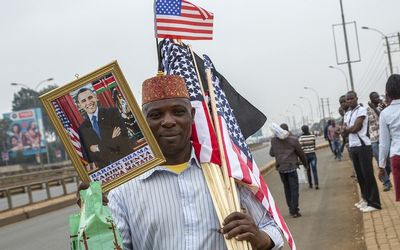
A hawker sells a picture of US President Barack Obama and US flags near Kenyatta University in Nairobi, Kenya, on Sunday. Picture: AFP PHOTO/GEORGINA GOODWIN
US President Barack Obama has just visited Kenya — the birthplace of his father — where he co-hosted the 2015 Global Entrepreneurship summit. This first presidential visit to his ancestral home at the fag-end of his second term is the ultimate triumph of the "politics of symbolism" that has characterised Obama’s engagement with Africa. US policy towards Africa still lacks consistent support from those who hold the purse strings in the US Congress. This has often reduced Obama to symbolic gestures rather than substantive action. His next stop after Kenya is the African Union (AU) headquarters in Ethiopia, reinforcing the symbolism of the first black US president visiting the seat of pan-Africanism.
In understanding the symbolism of Obama for the continent, it is essential to revisit his African heritage. His elegant 1995 memoir, Dreams From My Father, describes a painful quest for identity and a vulnerability triggered by the death of an arrogant, alcoholic but determined Kenyan father (in a car crash in 1982), who had left his family when Obama was only two. Obama met him only one other time, when he was 10.
Obama clearly identifies with Africa, as is evident from his journey of self-discovery to Kenya as a 26-year-old. As he put it: "The pain I felt was my father’s pain. My questions were my brothers’ questions. Their struggle, my birthright."
Once in Kenya, Obama feels his father’s seemingly ubiquitous presence. He is nostalgic about his father’s life and times, seeking to recreate a sometimes mythical past that he never knew, but so badly needs to understand and feel a part of.
Having struggled to become an African-American in the US in order to overcome his painful, fatherless childhood, it is as if the US president now wants to don the robes of an African identity.
When he visited Kenya as a US senator in 2006, Obama was enthusiastically received like a rock star and a returning son of the African soil.
His condemnation of human rights abuses and corruption in Africa was widely applauded. When, two years later, he was elected president of the US, a wave of "Obamamania" again swept across Africa.
He visited Egypt and Ghana in 2009 to call for democratisation in Africa and the Middle East.
In Ghana, Obama also visited the Cape Coast castle: a major slave post from which human cargo was transported to the Americas and the Caribbean.
The symbolism of the first black US president at the site of a tragic and sordid historical monument to a trade in which about 20-million Africans perished was particularly poignant.
However, by the time President Obama visited SA, Senegal, and Tanzania in 2013, the magic had worn off. The unrealistic expectations that the US president would transform US policy towards Africa had not even come close to being fulfilled.
In a touching but again symbolic event involving the first black presidents of the US and SA, Obama delivered the most eloquent eulogy at Nelson Mandela’s memorial service in Johannesburg in 2013, describing his fellow Nobel peace laureate as "a giant of history, who moved a nation towards justice, and in the process moved billions around the world … the last great liberator of the 20th century".
Obama has had other pressing priorities outside Africa, such as the economy, Russia, China, Iraq and Afghanistan.
He has successfully concluded the most sweeping healthcare reform in US history; renewed long-frozen diplomatic ties with Cuba, and recently clinched a hard-won nuclear deal with Iran.
Though he hosted the first US-Africa summit in Washington DC last August, this was effectively a "talking shop" involving empty pledges.
Obama has, in fact, continued some of the most egregious US policies towards Africa: 1,500 US soldiers remain in Djibouti in a never-ending "war on terror", while Washington participated in the 2011 North Atlantic Treaty Organisation intervention in Libya that has left that country anarchic and spread instability across the Sahel region.
More positively, Obama has continued the generous funding of HIV/AIDS programmes in Africa begun under former president George Bush.
He showed strong leadership during last year’s Ebola crisis, deploying a 3,000-strong military contingent to build hospitals and train healthcare workers in Liberia.
In true African tradition, we should welcome President Obama back to the ancestral home, but we must continue to hold his feet to the fire and not confuse symbolism with substance.
• Adebajo is executive director of the Centre for Conflict Resolution and visiting professor at the University of Johannesburg


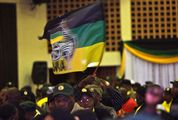

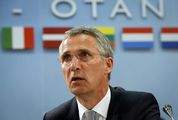




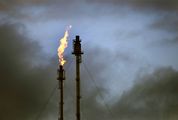

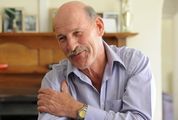









Post a comment